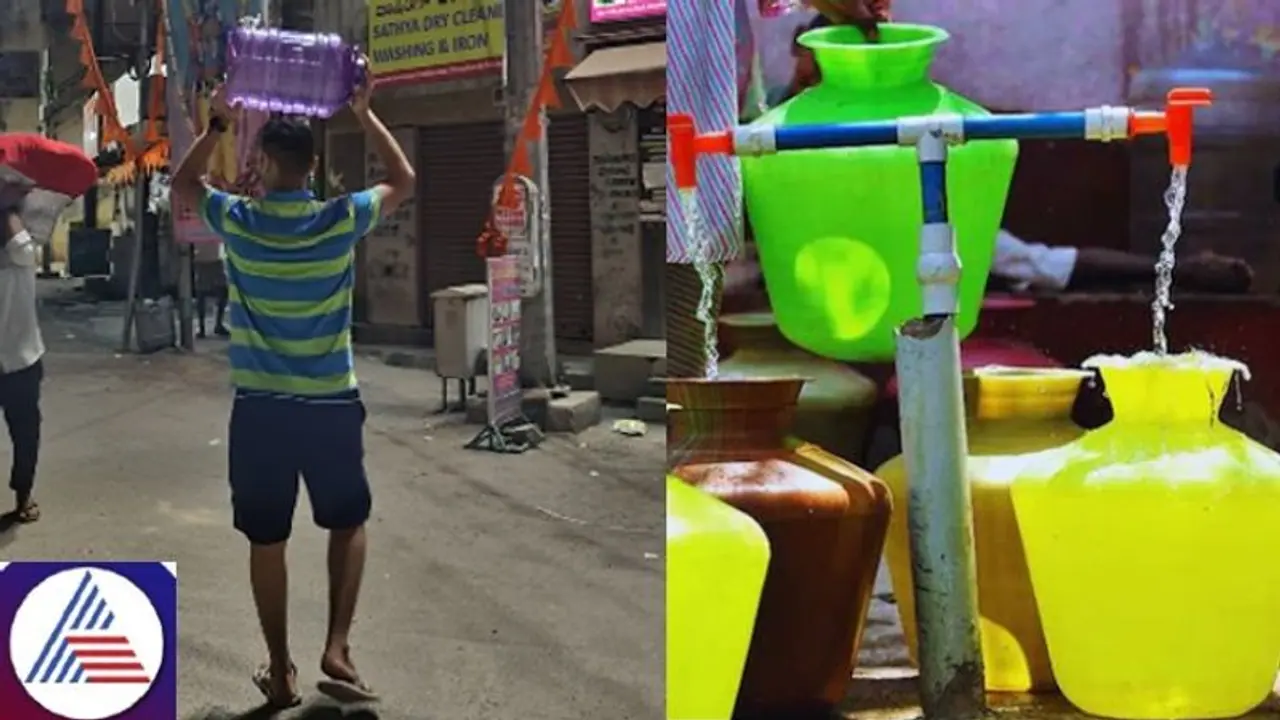Bengaluru, widely regarded as one of India's premier metropolitan cities, is currently grappling with an unprecedented water crisis, throwing the lives of its over 13 million residents into disarray. The situation has reached a critical point, prompting emergency measures from both the government and the populace alike.
The crisis, exacerbated by rapid urbanization and neglect of natural water resources, has been further compounded by the failure of both the southwest and northeast monsoons in Karnataka. As a result, the city's water supply has dwindled significantly, leading to dire consequences for its inhabitants.
In response to the severity of the situation, Deputy Chief Minister and Bengaluru Development Minister DK Shivakumar have directed the Bangalore Water Supply and Sewerage Board (BWSSB) to take control of all irrigation and commercial borewells in the city.
Additionally, the government has taken steps to rein in the rampant exploitation by private water tanker operators, who have been charging exorbitant rates ranging from ₹500 to ₹2,000 per tanker. Private contractors have been instructed to register themselves with the municipal corporation to facilitate more effective regulation and rationing of water.
On Tuesday, March 5, the decision to disinfect and deploy tanks operated by the Karnataka Milk Federation for supplying water to the city was reached after multiple emergency meetings.
Furthermore, Chief Minister Siddaramaiah has announced a series of measures to mitigate the crisis, including the establishment of taluk-level control rooms and helpline numbers, as well as the formation of task forces headed by local legislators. The severity of the drought, with 223 out of 236 taluks in the state affected, has significantly impacted water supply from both the Cauvery River and borewells, the city's primary sources of water.
As the crisis deepens, residents and housing societies have been forced to implement their own water conservation measures. Instructions to minimise water usage, such as bathing with half buckets of water, using "half flush" systems, and recycling waste water for mopping, have become increasingly common across the city.
However, the situation remains dire for many residents, with escalating costs for private water tankers and concerns over water quality. Dipali Sikand, a Koramangala resident, highlights the challenges faced by individuals who are forced to rely on purchased water, often at inflated prices and with compromised quality.
